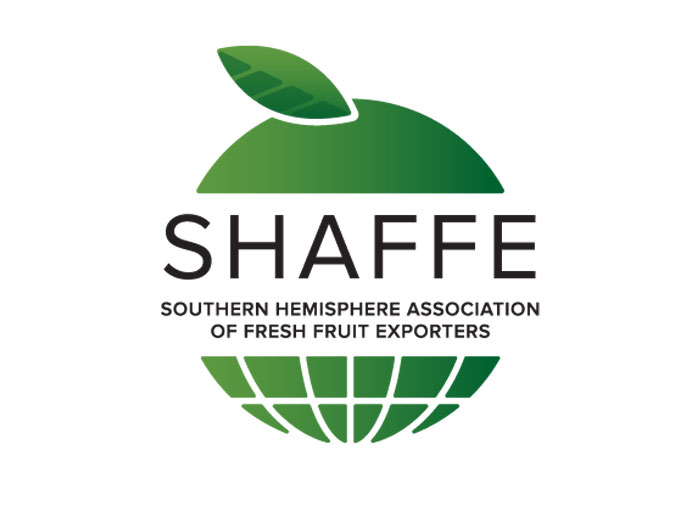The Southern Hemisphere Association of Fresh Fruit Exporters (SHAFFE) Writes to President Trump Regarding Tariffs on Fruits
April 15, 2025 | 4 min to read
The Southern Hemisphere Association of Fresh Fruit Exporters warns that the newly enacted reciprocal tariff policy will disrupt global supply chains, escalate consumer costs, and exacerbate inflation. With the U.S. relying on imports for 60% of its fresh fruits, these tariffs could increase prices significantly, costing households an estimated USD 5,000 annually. This may lead to a decline in fruit consumption, worsening public health issues and contradicting efforts to enhance food affordability and security. The association urges policymakers to exempt fresh fruits from these tariffs.

The Southern Hemisphere Association of Fresh Fruit Exporters (SHAFFE) represents the leading fresh fruit production and export associations in Australia, Brazil, Chile, New Zealand, Peru, South Africa, Uruguay, and Zimbabwe. Together, our member countries export nearly 12 million tonnes of fresh fruits per year for a total value of over USD 15 billion, thereby accounting for roughly 15 percent of the global trade in fresh fruits. Our members are united by their joint vision to create environmentally, socially, and economically sustainable value chains for fresh fruits from the Southern Hemisphere, bringing a myriad of benefits to consumers worldwide.
We are writing to you to express significant concern about the implications of the sweeping “reciprocal tariff policy” you signed into law on Wednesday 2 April 2025 (and whose implementation has now been delayed by 90 days). The imposition of these tariffs on fresh fruits imported into the United States of America will cause major disruptions for global supply chains, negatively affect market stability, and raise consumer costs.
The fresh fruit trade is uniquely complex. It is shaped by seasonal and regional factors that require a well-functioning market to ensure year-round availability. Supply chains and trade relationships take years to build, and existing production and distribution infrastructure cannot be easily shifted towards other origins or destinations in reaction to shifts in trade policy agendas. Once businesses lose market share, reclaiming it is difficult (if not impossible), dealing a lasting blow to an industry vital to food security and economic stability.
But tariff increases do not only disrupt global supply chains; they also reignite inflation pressures and limit consumer choice in the United States of America.
The United States imports roughly 60 percent of its fresh fruits, and 40 percent of its vegetables, with Mexico accounting for over two thirds of total vegetable imports, and more than half of all fruit imports. Retailers are reliant on tropical and counter-seasonal fruits imported from the Southern Hemisphere, ensuring year-round availability of fresh fruits in the United States and reducing price fluctuations. By ensuring that retailers’ shelves remain stocked when the fruit production season in the United States ends, our fruits help maintain consumer demand and strengthen consumer habits. Furthermore, imports of counter-seasonal fruits allow US operators to fully exploit their existing infrastructure and supply chains, even when domestic fruits are out of season. This lowers operators’ costs – and ultimately consumer prices.
Thus, the ability of US traders to import – and export – fruits without undue restrictions benefits American consumers and the economy: consumers can get the products they want when they want them, and the two-way trade boosts the economy and creates jobs.
Contrary to your administration’s claims, import tariffs are not paid by other nations – they are paid by importing companies, who then pass these costs on to consumers. It has been estimated that the tariffs unveiled on 2 April will cost each American household USD 5 000 per year, dealing a huge blow to working and middle-class families. With the average household currently spending over USD 600 per year on fresh fruits, consumers will feel the impact of the tariffs hard – and fast.
Fresh fruits are not a discretionary item; they are an essential element of healthy diets and an important source of fibre, vitamins and minerals. With prices on all fruits from strawberries to bananas expected to go up, American families will end up eating the impact of the new tariffs – literally and figuratively.
A growing share of the US population – almost 29 percent of children and 40 percent of adults – is consuming below a quarter of the amount of fruit that is recommended in the Dietary Guidelines for Americans. As the price of fruits increases, the availability of fruit in American homes will decrease even further, raising the incidence of obesity-linked diseases and cancer in a country that is already facing some of the highest rates of non-communicable diseases in the world.
But tariffs will not only affect consumers’ wallets and health by making imported fruits more expensive. American farmers heavily rely on imported agricultural inputs (such as fertilizers and machinery parts). Higher costs for these inputs would further strain an industry already struggling with rising production and distribution expenses – which will ultimately be reflected in the price for groceries paid by consumers. This result is the opposite of the administration’s pledge to bring down grocery prices for Americans, and inconsistent with the government’s broader policy goals to improve food affordability and food security.
The global trade in fresh fruits is essential to the health and well-being of people in every nation. It is also an integrated and highly complex supply chain that includes many trading partners across the globe. We therefore strongly encourage you to exempt fresh fruits from any tariff or other measures that could undue and lasting harm to growers, businesses, and consumers, in the United States of America and beyond.
Yours Sincerely,
Nathan Hancock
President,
Southern Hemisphere Association of Fresh Fruit Exporters
